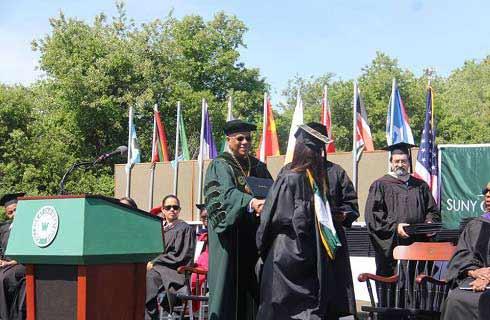Master of Laws (LLM) - Labor and Employment Law

学历文凭
Masters Degree

专业院系
Law.

开学时间

课程时长

课程学费

国际学生入学条件
Applicants who received their first law degree (JD) in the U.S. must submit an official LSAT score. International students who received their first law degree outside the U.S. are not required to take the LSAT exam. The minimum TOEFL score requirement is 250 for the computer based exam, 600 for the paper test, or 100 for the internet based exam. Two letters of recommendation are required. At least one letter should be from an academic source. You must submit transcripts for all collegiate, graduate and professional study. Applicants are required to submit an updated resume with their application.
IDP—雅思考试联合主办方

雅思考试总分
6.0
- 雅思总分:6
- 托福网考总分:100
- 托福笔试总分:600
- 其他语言考试:NA
CRICOS代码:
申请截止日期: 请与IDP联系 以获取详细信息。
课程简介
Labor and employment law refers to the broad array of laws that govern the relationships between, and the rights and duties of, employers, employees and labor unions. Labor and Employment Law (LEL) comprises three domains of law and policy: legal doctrine concerning general aspects of the employer-employee relationship (e.g., employment at will, wrongful termination claims grounded in contract and tort law), specific statutory frameworks regulating the individual employment relationship (e.g., employment discrimination law, occupational safety & health law, workers compensation, employee benefits law), and laws relating to labor unions and collective bargaining agreements (labor law). The LEL legal job market demonstrates a consistent, steady demand for lawyers who specialize in the field. Suffolk University Law School has an enduring record of graduates obtaining LEL positions in the private, public, and non-profit sectors, and many have advanced to partnerships in law firms and significant roles in public and non-profit agencies. Common practice settings allowing for specialization in this field include: Law firms of all sizes, Labor unions, In-house legal departments of corporations, Public sector agencies, Public interest groups In addition, issues implicating labor and employment law also often arise in the practices of lawyers who do not specialize in it, including general practitioners, civil litigators, in-house counsel, business lawyers, government and non-profit lawyers, and civil rights lawyers. Students seeking a basic survey course in the field, with the widest possible application to varied practice settings, should take Employment Law. Those who are interested in pursuing a career in LEL should plan to take each of the Core Courses identified below. The courses listed as Other Relevant Courses address specific sub-topics of LEL or cover legal concepts, skills, and perspectives that may be relevant to LEL practice.
相关申请
 预科
预科 奖学金
奖学金 实习机会
实习机会 在校学习
在校学习 跨境学习
跨境学习 校园授课-线上开始
校园授课-线上开始 在线/远程学习
在线/远程学习
开学时间&学费
学费信息仅供参考,请与IDP联系以获取详细信息
| 开学时间 | 时长 | 学费 | 地点 |
|---|
本校相关课程
其他相关课程

安大略大学高级调查和执法研究生证书
 圣力嘉学院
圣力嘉学院学历文凭
Graduate Certificate
开学日期
课程费用总额


法律文员文凭
 范莎学院
范莎学院学历文凭
Bachelor Degree
开学日期
课程费用总额


法律文员文凭(强化)
 亚岗昆学院
亚岗昆学院学历文凭
Bachelor Degree
开学日期
课程费用总额


高级执法和调查研究生证书
 尼亚加拉学院
尼亚加拉学院学历文凭
Graduate Certificate
开学日期
课程费用总额


环境保护与环境执法研究生证书
 弗莱明学院
弗莱明学院学历文凭
Graduate Certificate
开学日期
课程费用总额


司法研究文凭-执法
 博瓦立学院
博瓦立学院学历文凭
Bachelor Degree
开学日期
课程费用总额










 美国
美国






